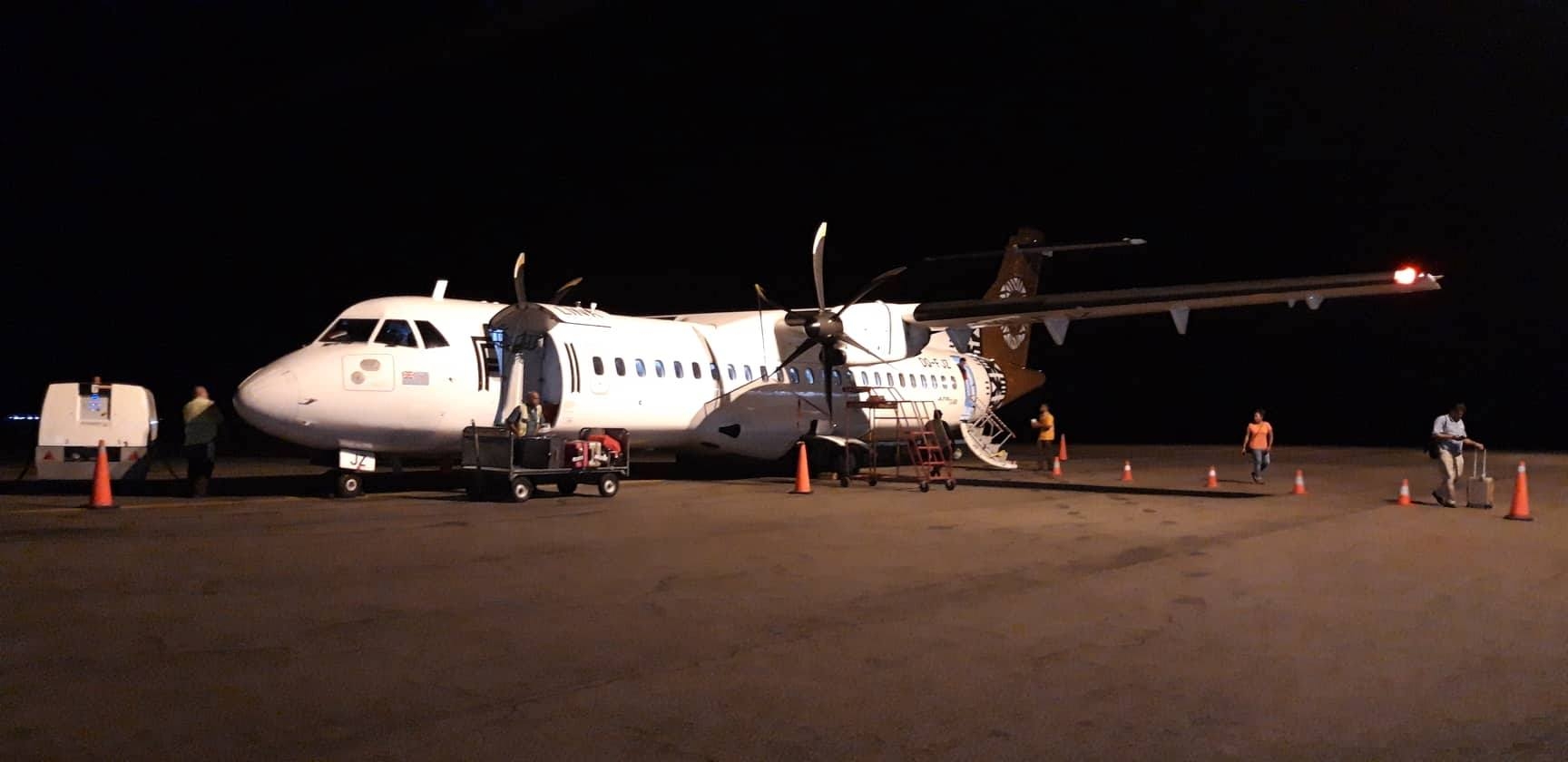By Netani Rika
PILOTS operating out of Fiji’s international airports have been forced to take on additional work which compromises aircraft safety after air traffic controllers quit in protest over salaries and conditions.
But operators and regulators continue to claim that operations at Nadi and Nausori International Airports remain safe.
This despite pilots needing to supervise the distances between aircraft and obstacles on the ground and up to 10 miles from the airfield after temporary operational procedures were introduced.
Labour Minister, Praveen Bala, has declared the strike illegal, forcing workers to seek advice from the Fiji Public Service Association and its leader, Rajeshwar Singh.
Bala failed to meet workers on Thursday, despite three assurances that he would hold talks with them.
The workers want higher salaries from Fiji Airports Limited which has paid $45 million in dividends in 2017 and 2018.
Fiji Airports Executive Chairman, Faiz Khan said the company had paid $14 million to the government in five years.
“We are extremely concerned that there appears to be a deliberate obfuscation that operations are normal,’’ the workers said in a statement today.
“’Over the past few days, Fiji Airports Limited, have communicated that air traffic management operations are normal. Fiji Airways Limited and Fiji Link have stated that flight safety schedules have been maintained and that there have been no disruptions to their schedule.’’
But with the number of officers on duty at control towers at Nadi and Nausori, the striking workers argue that safety has been compromised.
There are two officers at the Nadi Air Traffic Management Centre, two in the control tower and one on duty at Nausori.
The normal daily complement is 10 at the Nadi ATM Centre, seven in the tower and three at Nausori according to national and international requirements.
“We are at a loss as to how FAL, and by extension CAAF, continue to state that operations are normal and safe,” the workers’ statement said.
Fiji Airports Limited and the Civil Aviation Authority have grounded flying school aircraft and restricted other general movement of aircraft to manage the Air Traffic Control workload at airports.
And instead of the normal services provided by air traffic controllers, Fiji Airports provides a lower level of service known as Traffic Information and Broadcast Advisory (TIBA).
The TIBA forces pilots to take on the responsibility for obstacles in the air up to 10 miles from the airfield and to separate themselves from each other on the ground while landing and taking off.
These procedures are usually activated in areas where there is very light traffic such as helicopters, float planes and other small aircraft.
Workers said the TIBA was not applicable in moderate to heavy workload areas such as Nadi and Nausori Airport where international aircraft operated and there was a high workload in cockpits.
“’FAL would rather the issue of workload is transferred to pilots of international and domestic turboprop and jet aircraft rather than try to resolve its internal issues,’’ the workers said in a statement.
Workers met Khan three times this week to address their grievances, but talks were abandoned, and no agreement was reached.
The workers have – since 2016 – sought higher pay and better working conditions. Their last pay rise was a five per cent increase approved in 2016 and paid in 2017.
Workers have described the increase as “not something we asked for” and an “attempt to stop air traffic controllers from leaving for greener pastures’’.
In a news conference they called in Suva last Thursday, three team leaders of the protesting air traffic controlers say they know of eight to ten of their officers who have applied for work overseas.
They also say that persistent rumours are that Fiji Airports want to hire controllers from New Zealand to come and manage Fiji’s air traffic space.
Ends/

